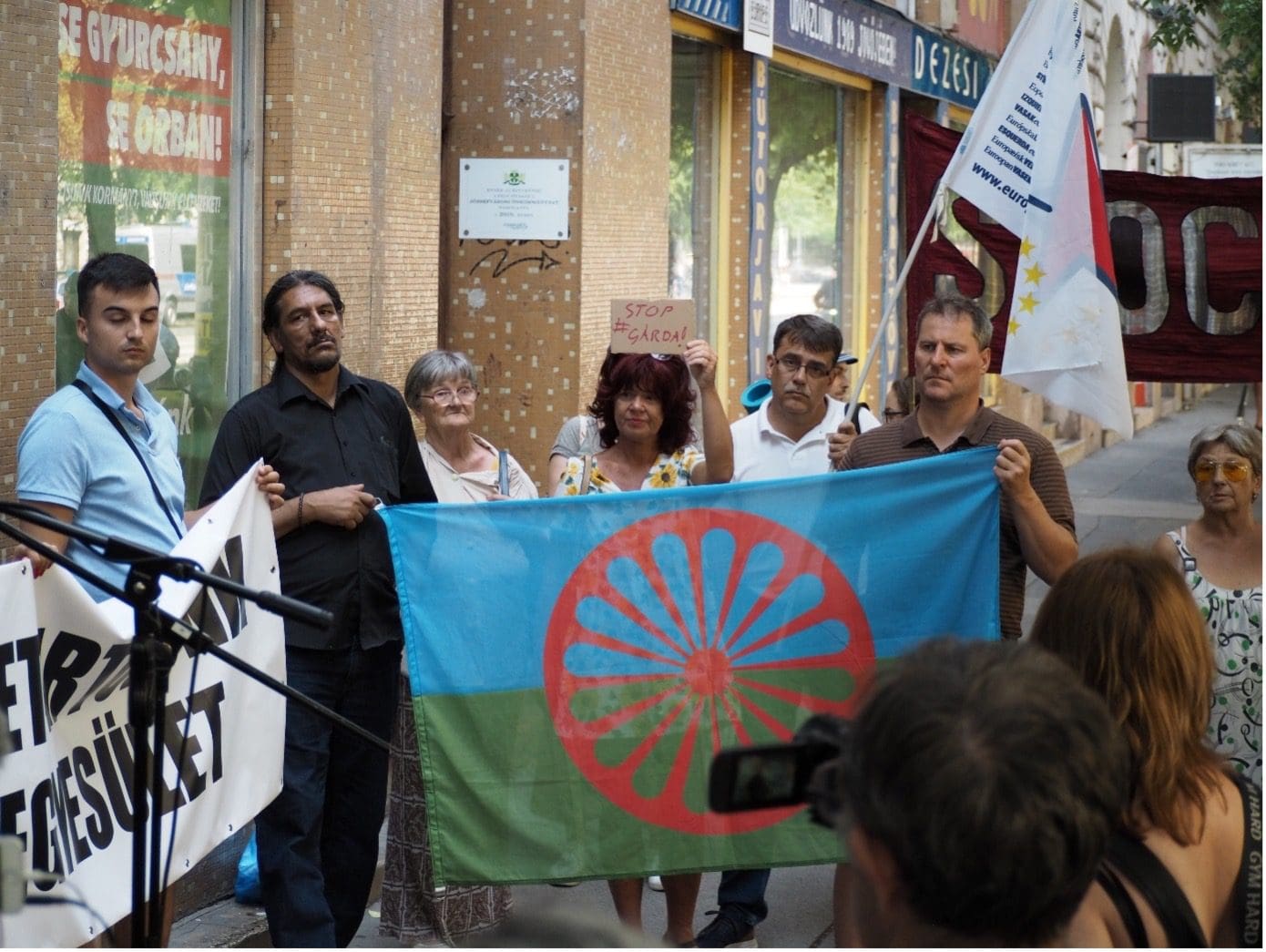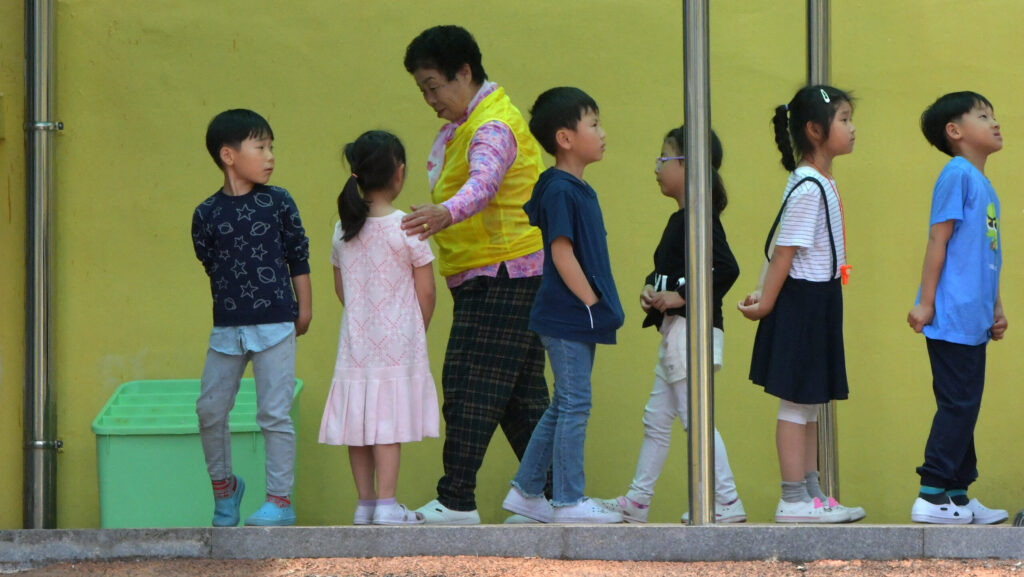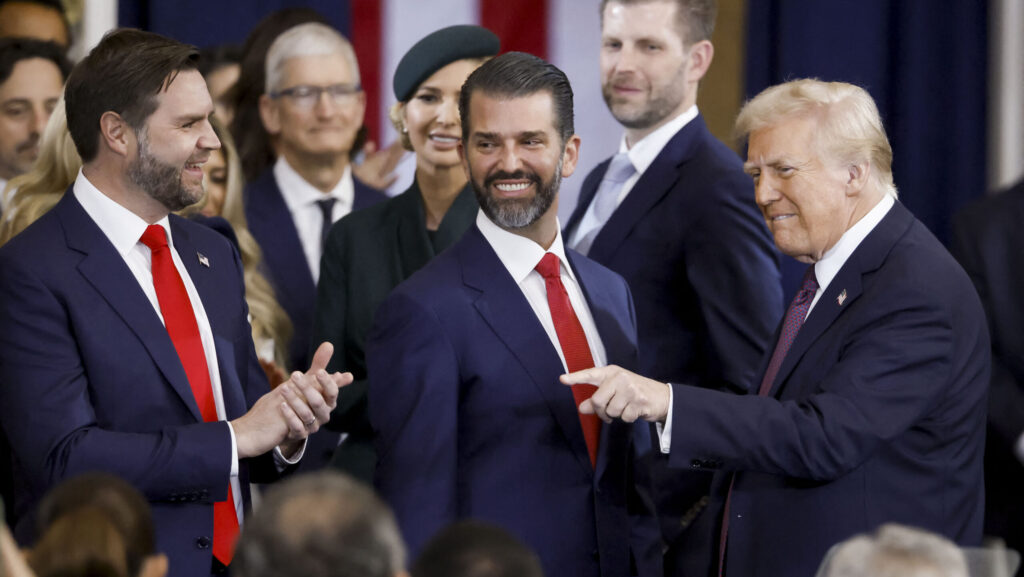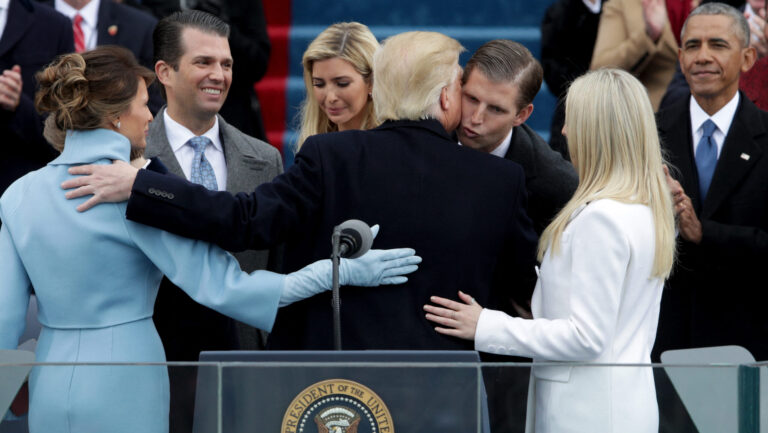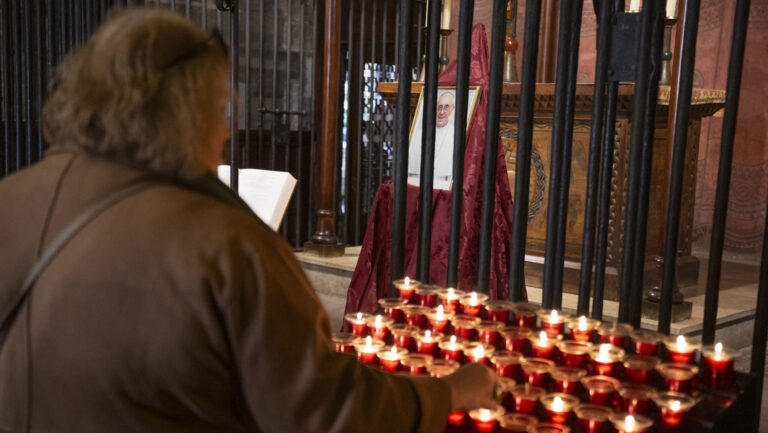As discussed in our previous article, according to a study by the University of Debrecen, there are around 876 thousand Roma people in Hungary, representing around 8.8 per cent of the country’s total population. Given their considerable numbers, Roma could be a decisive force in Hungarian politics, however, due to the fragmentation of their political leadership in the last thirty years, Roma representation has not left any significant mark on Hungarian public life. Since the regime change in 1989, over fifty Roma minority parties have been established, but none of them ever garnered even one per cent of the votes in general elections.[1] In this year’s election, the most recently founded Roma party (A Mi Pártunk – Our Party) won as few as 326 votes in the whole country.[2]
Similarly to all the other 13 recognised Hungarian national minorities, Roma also have the right to elect their national representative to the Hungarian parliament. This year János Agócs, the current president of the National Roma Self-government (Országos Roma Önkormányzat – ORÖ) was heavily campaigning to win a minority MP seat in parliament. To achieve this, he would have needed 25 thousand votes cast on the Roma national list. (So far, only the German national minority has been successful in collecting the required number of votes to gain a seat in the national assembly). The ORÖ campaign did manage to convince 33 thousand Roma to sign up for voting on the Roma list. For these ethnic minority voters, what that meant was that they traded their vote on a party list for a vote on an ethnic representative. However, unfortunately, ORÖ delegates failed to agree on a Roma candidate list, so eventually there was no Roma candidate to vote for. As the fact that the Roma would be unable to vote for an ethnic representative became known only very close to the election’s date, many Roma voters (who had already signed up to vote on the minority Roma list) had not time to sign off the list. Thereby, their chance to vote on a party list was wasted.[3]
The ORÖ campaign did manage to convince 33 thousand Roma to sign up for voting on the Roma list
ORÖ did not only fail to put together a Roma list, but it also missed the chance to send a Roma spokesperson to parliament. In case a minority fails to send an elected MP to parliament, there is still a chance for them to send a spokesperson to the national assembly. During the previous two parliamentary cycles, Félix Farkas was the Roma ethnic spokesperson in the Parliament. As a spokesperson, he could speak up for the Roma minority, but he did not have the right to vote in the national assembly. This time, however, the National Roma Self-Government will not delegate a national spokesperson to the parliament, as its members could not agree on whom to send. ORÖ’s second general meeting, attempting to agree on a candidate who would ensure the parliamentary representation of the Roma, lasted for 13 hours, and it almost descended into a fist fight, and yet the ORÖ delegates failed to settle the question of representation.[4]
Another way of getting Roma politicians into parliament is for them to run as representatives of mainstream parties. In 2001, Fidesz reached an agreement with Lungo Drom (a close-to-the-government Roma interest group) to reserve some of the places on Fidesz’s party list to Roma candidates (the 1998–2002 parliamentary cycle, prior to the agreement, was the only four-year period in the life of the Third Hungarian Republic when there was no Roma MP in the Hungarian parliament at all). Flórián Farkas, the long-time Fidesz Roma MP, got into parliament as a result of this agreement. Farkas had been in parliament since 2002, usually as the sole Roma MP. However, as many have pointed out, since 2013 he has not once spoken in plenary sessions.[5] He is a definitely scandal-torn MP, considering that, through various projects presided by him, over 100 million HUF-worth of EU aid has “vanished”. There have been several questions and corruption allegations raised about his handling of other financial resources as well, all of which were intended to be used as support for the Roma. This year was the first election in two decades when Flórián Farkas did not feature among Fidesz’s candidates. Instead of Farkas, Fidesz gave the seventeenth place on their party list to Attila Sztojka,[6] the party’s new Roma face.
Agócs told left-wing national political daily Népszava that in the last two elections, 90 per cent of Hungarian Roma had voted for Fidesz, but he believed the tides can change
The opposition also expressed interest in sending Roma representatives to parliament. János Agócs, after ORÖ failed to create a Roma minority list, signed a statement in support of the united opposition, calling on all Roma and non-Roma citizen to vote to remove the government in April. Agócs told left-wing national political daily Népszava that in the last two elections, 90 per cent of Hungarian Roma had voted for Fidesz, but he believed the tides can change.[7] Besides securing the ORÖ’s leader’s support, the opposition also tried to appeal to the Roma vote by fielding some ethnic Roma candidates. The then-leader of the united opposition, Péter Márki-Zay, demanded that opposition parties put at least three Roma candidates on their lists. That is how Sándor Berki was given the fifteenth place (fielded by Párbeszéd), Lajos Lőcsei the twentieth place (running as a Momentums candidate) and Ferenc Varga the twenty-fifth place (in Jobbik colours) on the join opposition party list.[8] Now all of them are elected MPs, and as a result, the new national assembly will have the highest number of Roma representatives in years.
[1] Attila, Papp, ‘ „Adunk közmunkát, lesz falunap, ahol ugrándozhattok, mint a táncoló rabszolgák, cserébe a Fideszre szavaztok” – a romák és a magyar politika,’ 24.hu, (2022), https://24.hu/belfold/2022/03/25/cigany-kepviselo-roma-politika-orszaggyulesi-valasztasok-2022-horvath-aladar-berki-sandor/, last accessed 13.04.2022.
[2] ‘A mi pártunk – IMA,’ választás.hu, (2022), https://vtr.valasztas.hu/ogy2022/jelolo-szervezetek/IMA-1024?tab=results, accessed 14 April 2022.
[3] Gábor Czene, ‘Romák tízezreinek a voksai vesznek el a parlamenti választáson,’ Népszava, (30 March 2022), https://nepszava.hu/3151772_roma-valasztas-2022-szavazat, accessed 14 April 2022.
[4] Anna Szalai, ‘Ha nem fideszes, akkor senki – Elveszett magyarországi romák parlamenti képviselete,’ Népszava, (2022), https://nepszava.hu/3145135_magyarorszag-parlament-roma-oro, accessed 14 April 2022.
[5] P.T., ‘Akit azért fizetünk, hogy hallgasson – Farkas Flórián 2020-ban is néma maradt a parlamentben,’ varosikurir.hu, (2022), https://varosikurir.hu/farkas-florian-2020-ban-is-nema/, accessed 14 April 2022.
[6] Bálint Szalai, ‘Kiadták a Fidesz listáját, Farkas Flórián kimaradt, Szabad Európa, (2022), https://www.szabadeuropa.hu/a/fidesz-lista-farkas-florian-sztojka-attila/31723568.html, accessed 14 April 2022.
[7] Gábor Czene, ‘Roma politikusok buzdítanak az ellenzék támogatására, teljes fordulat jöhet,’ Népszava, (25 March 2022), https://nepszava.hu/3151197_roma-politika-valasztas-2022-fidesz-ellenzek, accessed 14 April 2022.
[8] Máté Vaskor, ‘Tele lesz a parlament új arcokkal,’ 24.hu, (4 April 2022), https://24.hu/belfold/2022/04/04/orszaggyulesi-valasztas-2022-parlament-uj-tagok-arcok-kepviselok/, accessed 14 April 2022.

